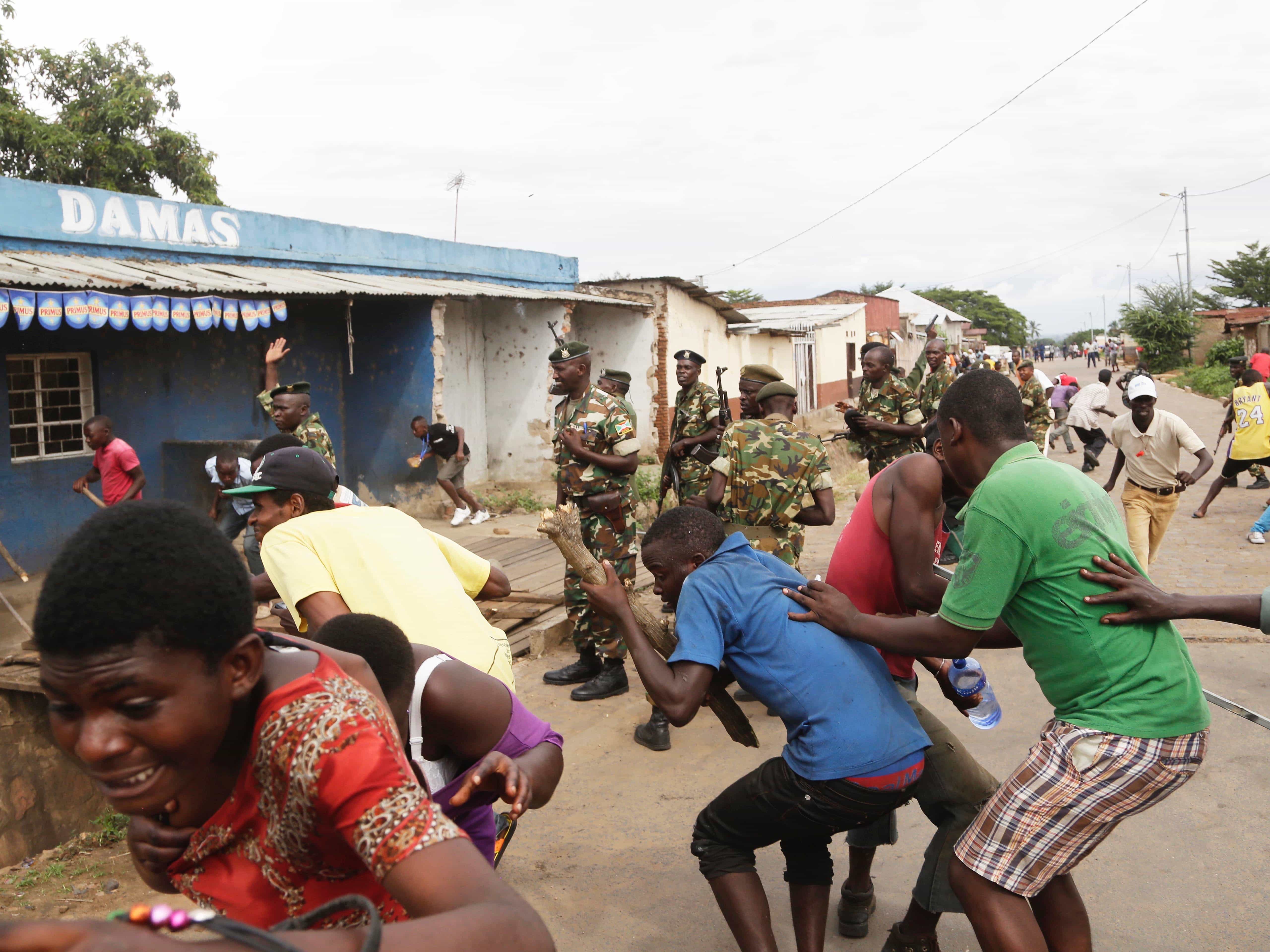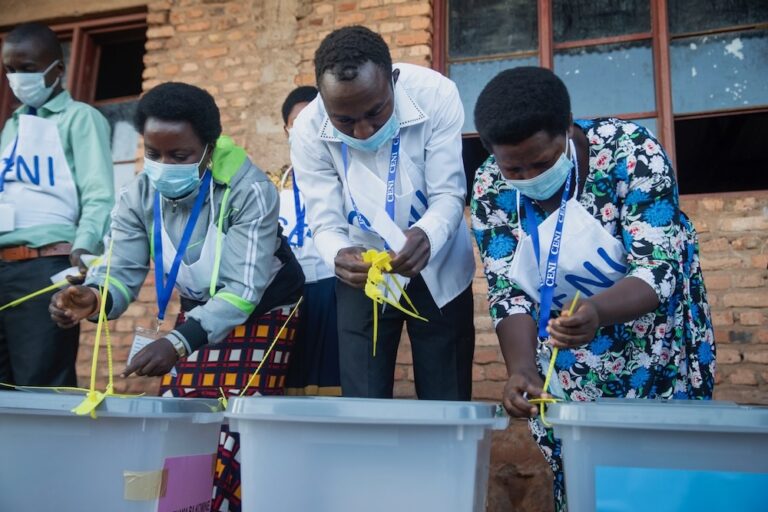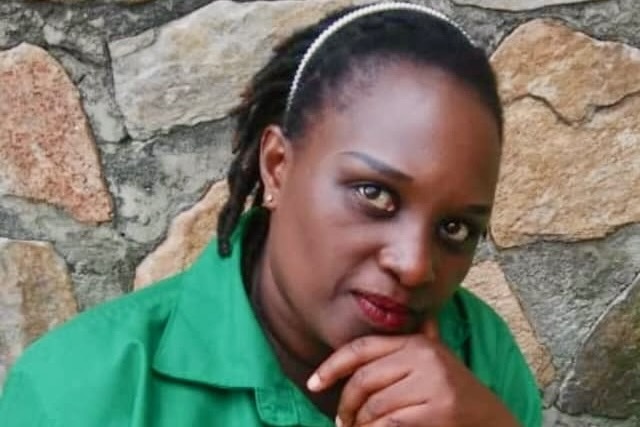"Burundians live in fear of the next attack, afraid to speak out to denounce the killings, torture, and other abuses."
This statement was originally published on hrw.org on 19 January 2017.
Members of the Burundi ruling party’s youth league, the Imbonerakure, have brutally killed, tortured, and severely beaten scores of people across the country in recent months, Human Rights Watch said today. The killings and other ill-treatment reflect the widespread impunity for Imbonerakure members and the government’s unwillingness to prosecute or rein in the group.
Over the past three months, members of the Imbonerakure, “those who see far” in Kirundi, the predominant language in Burundi, used clubs to beat to death a 15-year-old boy, drove a knife into the eye of one victim, blinding him, and attacked others with knives, clubs, and wooden poles. The Imbonerakure members cut out the eye of another man, then stomped him to death.
Imbonerakure members have also set up unofficial roadblocks in multiple provinces, sometimes detaining and beating passersby and extorting money or stealing their possessions.
“Burundians live in fear of the next attack, afraid to speak out to denounce the killings, torture, and other abuses,” said Ida Sawyer, Central Africa director at Human Rights Watch. “The killers and torturers who carry out violence so freely and the Burundian officials who support them need to know that there are consequences for their actions.”
The country has descended into lawlessness since April 2015, when President Pierre Nkurunziza announced his bid for a disputed third term, despite the two-term limit set forth in the Arusha Accords. The political framework, signed in 2000, was the first of several power-sharing agreements between belligerents intended to end the country’s civil war. Government security forces and members of the Imbonerakure cracked down on protesters and critics of Nkurunziza’s government.
The country’s once vibrant independent media and nongovernmental organizations have been decimated, and more than 325,000 people have fled the country. In the past year and a half, several hundred people have been killed and others have been tortured or forcibly disappeared. Armed opposition groups have also attacked security forces and ruling party members, including police and Imbonerakure.
The new Human Rights Watch findings are based on interviews conducted since October 2016 with over 20 victims, human rights activists, and others who described a range of abuses committed by Imbonerakure members in six of Burundi’s provinces. Some victims were interviewed outside the country. Most described incidents that occurred in the last four months, but Human Rights Watch also discovered new victims tortured or ill-treated by Imbonerakure earlier in 2016.
Human Rights Watch learned of several additional incidents of abuse, but victims were afraid to speak about what they or family members had suffered. Many said they feared reprisals from ruling party members if they spoke about the abuses.
Since the start of the crisis, police and intelligence agents have frequently used Imbonerakure members to identify suspected opponents living in Bujumbura, the capital. Some of those arrested by Imbonerakure – who have no legal power to detain people – were later tortured by security forces.
Witnesses said that while some Imbonerakure members are arrested for committing abuses, many are released quickly and never face trial. Victims said judicial officials will often only investigate cases if the person filing the complaint pays a bribe.
Lawyers, witnesses, and magistrates said that politically sensitive cases are often handled by magistrates close to the ruling party. Many people refuse to file judicial complaints against Imbonerakure members because they fear them and have lost confidence in the justice system, which they believe is unable to help the victims and may be involved in abuses.
One man said he filed a complaint with the police in February 2016 after two policemen raped his wife. They told him he was “staining the image of the security forces.” After police threatened him and Imbonerakure members beat him up, he withdrew the complaint.
The Burundian authorities should immediately and publicly order Imbonerakure members to stop illegally detaining, ill-treating, and extorting money from the population, Human Rights Watch said. The Burundian justice system should investigate and prosecute members of the Imbonerakure who commit these crimes. The government should also dismantle all illegal roadblocks throughout the country.
In a five-page response to questions from Human Rights Watch, Nancy-Ninette Mutoni, the executive secretary in charge of communication and information for the ruling party, wrote that Imbonerakure carry out political activities “calmly and serenely” and do not arrest people. She wrote that the ruling party opposes torture and has not received any complaints about abuses from the population, adding that she is morally outraged by the “dehumanization” of the Imbonerakure: “Those [Imbonerakure] who transgress are severely sanctioned first of all by the internal laws [of the ruling party] and if necessary, we will resort to penal laws.” She said the accusations of extortion are “pure lies.”
Mutoni said Imbonerakure participate in “mixed committees,” consisting of local residents, authorities, administrative officials, and security force members, which are intended to provide security. In these committees, the Imbonerakure “not only have the right but also the obligation to do surveillance and to signal all movements and suspect acts to the security forces.”
In recent months, government officials have been attacked by unknown people. On November 28, 2016, gunmen attacked and injured Willy Nyamitwe, the president’s communications adviser, near his home in Bujumbura. On December 31, a gunman shot dead Emmanuel Niyonkuru, Burundi’s environment minister, at his house in Bujumbura. Multiple suspects have been arrested in both cases.
The United Nations Human Rights Council adopted a resolution in September 2016, to establish a commission of inquiry into human rights violations in Burundi since April 2015, and to determine whether they may constitute international crimes. The commission is also mandated to identify those allegedly responsible with a view to ensuring accountability. Burundian officials have said they will refuse to work with the commission.
In July 2016, the UN Security Council adopted a resolution authorizing the deployment of 228 unarmed police to Burundi to support UN human rights observers. Burundian authorities have refused the deployment.
The UN Security Council should impose travel bans and asset freezes against individuals responsible for ongoing serious human rights violations in Burundi, Human Rights Watch said. The Security Council should create a panel of experts to identify Burundian officials, whether in government or the opposition, most responsible for summary executions, torture, and other serious human rights abuses since April 2015.
The sanctions framework should include exemptions for humanitarian purposes, and ensure due process to challenge the sanctions, as well as provisions to lift or suspend the sanctions in the event that sanctioned individuals remediate these abuses or Burundi authorities ensure adequate accountability for serious crimes. Asset freezes and travel bans would directly target abusers, and would have no negative effect on the broader Burundian population.
The UN Commission of Inquiry should quickly open its investigation. It should prioritize investigating killings and other abuses by the Imbonerakure with a view to identifying members of the Imbonerakure, security forces, or ruling party officials most responsible.
In addition, if the International Criminal Court (ICC) finds enough evidence to warrant a full investigation, it should open one as soon as possible and investigate Imbonerakure abuses – including anyone in senior positions responsible for planning, assisting or failing to prevent crimes against humanity.
“The UN, the ICC, and Burundi’s regional and international partners should mobilize at the highest levels and take action now to hold those responsible for the serious crimes against Burundians accountable and halt the violence and abuse in Burundi,” Sawyer said.
For further information on killings, torture, and other recent abuses by members of the Imbonerakure, please continue reading on hrw.org.



